![]() Alberta regulators wrote in official letters closing contaminated well water investigations that it’s fine for landowners to live in explosive risk from their drinking water contaminated with methane by the oil and gas industry, and fine to use methane contaminated well water to bathe in, cook with, drink, and to water gardens/livestock with, and spray crops with. Then, in 2018, AEP writes in an official directive that companies are not allowed to use methane contaminated groundwater to frac?!
Alberta regulators wrote in official letters closing contaminated well water investigations that it’s fine for landowners to live in explosive risk from their drinking water contaminated with methane by the oil and gas industry, and fine to use methane contaminated well water to bathe in, cook with, drink, and to water gardens/livestock with, and spray crops with. Then, in 2018, AEP writes in an official directive that companies are not allowed to use methane contaminated groundwater to frac?!![]()
Top of Page 3, in Alberta Environment’s (AEP) Directive:

MondoAB@MondoAlberta Jan 2024:
Sobering. Alberta water situation is critical.
UCP doesn’t want us to know and doesn’t seem to care. Other than how will this affect fossil fuel extraction.
@JennyYeremiy:
“the frontier aspect of Alberta is over and we need to grow up. Unlimited space & inexhaustible resources are no more. Perhaps last on the list to be recognized is water, especially for southern Alberta.” #AbPoli
“UnAlbertan” CougstaX@cougsta:
Since a lot of these farmers/ranchers voted UCP and deny climate change![]() And worship oil, gas and frac
And worship oil, gas and frac![]() , I’m gonna deny this drought. It’s a hoax to take our urban water. Or something.
, I’m gonna deny this drought. It’s a hoax to take our urban water. Or something.
@Maxio28:
They made their bed, and now it’s time for them to sleep in it.
Crying about the feds 3 2 1
@BurchatLouella:
Gee, wonder who Danielle will blame for this disaster? Trudeau I guess?
Barb Germann@BarbJG:
Wait till the coal mining gets into full gear. The water we do have will be poison.![]() My water got frac’d and turned into poison by Encana/Ovintiv twenty years ago, with cover-up, lies and secrets by our regulators and broken promises to provide all the frac harmed with safe alternate water by con politicians
My water got frac’d and turned into poison by Encana/Ovintiv twenty years ago, with cover-up, lies and secrets by our regulators and broken promises to provide all the frac harmed with safe alternate water by con politicians![]() Must be Trudeau’s fault. He is trying to make the UCP look bad. That’s gotta be it.
Must be Trudeau’s fault. He is trying to make the UCP look bad. That’s gotta be it.
@OneTriton:
Conservatives will most likely blame the Liberals for not sending the rain
Richard Gray@RichardGra85777:
Here in Canada every city now has several tent encampments that resemble refugee camps. Not sure how anyone can deny the collapse of everything we know, happening right in front of us.![]() I’ve been observing collapse of humanity for the last 2.5 decades – since frac’ing invaded, followed by Steve Harper then Trump, the yellow vesters (financed by oil and gas) turned fucker truckers (financed by mostly USA donations/dark money). Healthy species do not intentionally contaminate water (vital for life) and permanently remove much of it from the hydrogeological cycle.
I’ve been observing collapse of humanity for the last 2.5 decades – since frac’ing invaded, followed by Steve Harper then Trump, the yellow vesters (financed by oil and gas) turned fucker truckers (financed by mostly USA donations/dark money). Healthy species do not intentionally contaminate water (vital for life) and permanently remove much of it from the hydrogeological cycle.![]()
Opinion: The era of abundant water is over by Lorne Fitch, Jan 04, 2024, Edmonton Journal
There need to be periodic reminders that the frontier aspect of Alberta is over and we need to grow up. Unlimited space and inexhaustible resources are no more. Perhaps last on the list to be recognized is water, especially for southern Alberta. The Alberta government seems reluctant to make Albertans aware of the real possibility of an impending water crisis.
Article content
Ironically, for an arid landscape we still seem stuck on the perspective that water is abundant and growth is not limited by the supply. In reality, water has always been in short supply. We have been lulled into a state of complacency with the marvels of dams, reservoirs and canals. These have given us an impression of abundance. Despite all of this engineering infrastructure we are still just one or two years of low snow melt away from water shortages.
Article content
Climate change isn’t our future; experts remind us it is our present. Declining river flows, persistent drought, increased temperatures, heat domes, greater evaporation and more wicked weather events signal our world has changed and has done so irrevocably. The frontier of easy, reliable, abundant and engineered water is at an end.
This is not the end of our world but it’s time to be smarter, more conscious of the changes and better stewards of what water is available. This might start with recognition that irrigation expansion is a dream that cannot be fulfilled. Even if we completely drain our rivers and renege on interprovincial water sharing agreements this dream cannot be sustained. We can’t make more water, building more storage is an expensive, zero-sum game and any temporary advantage is at the mercy of climate change.
Major John Wesley Powell, head of the U.S. Geological Survey, surveyed the arid western states in the late 1800s and provided advice on a sustainable path for development. In answer to schemes to dam rivers in the region he prophetically stated, “All the waters of all the arid lands will eventually be taken from their natural channels. And there is not sufficient water to supply the land.” Indeed, massive reservoirs on the Colorado River and tributaries, many with shrunken pools of water, have not allowed the region to avoid climate change.
Doing more of what we have always done — more dams, more reservoirs, more irrigated acres — is navigating our future through the rearview mirror. There are other forward thinking pathways that have more promise.
To begin to see those other pathways requires the discussion to occur outside of the boardrooms of the irrigation sector and their agency supporters. Water, its uses, and future is of concern to all Albertans, not just one sector. A sector that is so reliant on the public purse needs to be more receptive to ideas from Albertans outside the irrigation fold.
Article content
To begin, we need to deal with the chronic over-allocation of water, a historical artifact of the frontier. Several southern Alberta rivers are dying from lack of water; this needs to be dealt with through the science of instream flow need studies. It will also require those with water licences to surrender some of their water for the public good, to restore ecosystem health in our rivers.
Serious questions about crop choices under irrigation need to be addressed, especially thirsty ones like alfalfa. More efficient irrigation systems, reduction in evaporation from open canals (which is being addressed with pipelines) and water metering offer opportunities to continue irrigation agriculture through prolonged periods of water scarcity.
All of us need to conserve water and not waste it. Urban dwellers might start by ditching their thirsty Kentucky bluegrass lawns in favour of something more native and drought-tolerant. As individuals, families, corporations and governments, we are in this together and everyone needs to do their part.![]() Frac’ers too?
Frac’ers too?![]()
The South Saskatchewan Regional Plan is due for a review in 2024. This is where we can and should come together to better plan our water future. If we can appreciate this is a multi-sector initiative, at a watershed scale, there are opportunities to better adapt to a changing world.
Article content
Thinking at a watershed scale will focus attention on the headwaters, where all our water originates. Intact forests trap, store and slowly release water to all of us. These are the ultimate reservoirs for water.
If we continue on a path of industrial-scale clearcut logging, this will dramatically affect the hydrologic response of our headwaters. Faster runoff, more flooding and less water later in the season will severely hamper our ability to effectively use our existing reservoir capacity. If we don’t start connecting the dots between the state of the watershed and downstream water availability, this will exacerbate drought conditions, ability to irrigate, provide domestic water supplies and affect economic sustainability.
We have operated too long with siloed approaches to water. With the frontier of resource abundance behind us, change is required.
When you’re running on empty it doesn’t matter how big your gas tank is or how many reservoirs there are; it also doesn’t matter how much your water licence says you can divert. You might think change isn’t necessary, but neither is survival.
Lorne Fitch is a professional biologist, a retired fish and wildlife biologist and a former adjunct professor with the University of Calgary.
Dan Smith:
10 years ago; NASA stated that the glaciers that supply Alberta with water in the summer and fall, would slowly melt and be gone by 2035. They predicted that most rivers would be dry for 6 months of the year long before 2035. Actual statistics show that the rate of decline is occurring more rapidly. Disaster is on the horizon, yet no one wants to talk about it.
Mary Hamilton:
Excellent column, thank you. Rural people who have been reliant on well water, and sometimes have to haul potable water, have been aware of the arid nature of the southern prairies since the beginning.
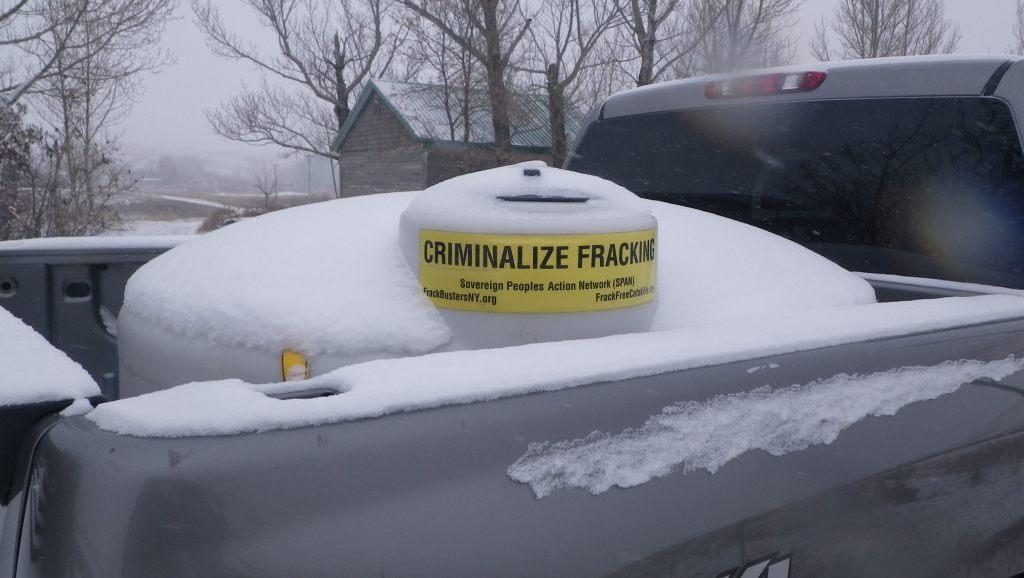
![]() My 185 gallon water tank for hauling safe alternate water after Encana/Ovintiv broke all the laws in Alberta in place to protect groundwater, enabled by AER, Alberta Environment and our scuzzy oil patch owned cowardly politicians. I ration my water use, do not water my lawn, and can make 185 gallons last me weeks. Many people I know waste that in a day.
My 185 gallon water tank for hauling safe alternate water after Encana/Ovintiv broke all the laws in Alberta in place to protect groundwater, enabled by AER, Alberta Environment and our scuzzy oil patch owned cowardly politicians. I ration my water use, do not water my lawn, and can make 185 gallons last me weeks. Many people I know waste that in a day.![]()
Another topic is the pollution of the water we do have. Fracking chemicals, agricultural runoff, and the billions of gallons used in the tar sands are unsustainable.
Craig Henderson:
Well obviously the shortage of water requires railing at cults, alarmists, taxes, leftists and denial of established science. Yup that will make more water
Roxanne St. Goddard@rstgoddard:
UCP looking to manage, that’s a good one! I will believe it when I see it.
Ron Small:
Well Doctor Danielle Smith what is your plan to solve this water shortage problem? Maybe you could reclaim the millions of liters of waste waters in our tailing ponds that your oil and gas friends have created over the years and your PC?UCP government have done nothing about except getting the AER to turn their heads or close their eyes.?
I think taking into fact that we all will soon have a shortage of fresh water that you should ask the oil and gas industry to double the amount of oil they are now producing so we can blame that on the Liberal government and maybe open up a few coal mines so that they can get their fair share of fresh water to support their production.
Any idea how much more water we will need in Alberta and where it will come from to fulfill your plan to increase the capacity from our oilsands next year?
Once again Smith and the UCP do not have a plan and are flying by the seat of their pants. She will say and do anything she can to keep her friends in the oil and gas industry happy.
***
Roxanne St. Goddard@rstgoddard:
So will the gov’t advise the coal mines and the oil & gas to use less water? or do they get free rein to use as much as they want ![]() Of course!
Of course!![]() and the rest of Albertans have to deal with the drought.
and the rest of Albertans have to deal with the drought.
Alberta government warning municipalities about water use this year due to drought, Letter from environment minister asks municipalities to come up with a plan by Michelle Bellefontaine, CBC News, Jan 5, 2024
Alberta’s environment minister is reaching out to municipalities asking them to find ways to use less water this year in light of the province’s drought.
In a letter sent Dec. 20, Rebecca Schulz asked municipal leaders to develop a water shortage plan, monitor water intake, and review their water licences to see if there are any limits set during drought conditions.
She also asked municipal water managers to be on standby in case they are contacted by the province’s new drought command team.
In an interview with CBC News, Schulz said her ministry wants to act proactively and get municipalities to look now at ways they can conserve water.
“We’re really asking them to gather that information sooner rather than later… and then look at a plan to manage this across the province,” she said.
The province is in a drought due to low rainfall, high temperatures and the effects of El Niño, which is bringing milder weather to northern climates.
Schulz’s department is preparing Alberta water users for the strong possibility drought conditions will continue into 2025.
The minister appeared at the Alberta Municipalities and Rural Municipalities of Alberta conferences last fall to get the message out to municipal leaders.
The department has set up a drought command team and plans to pull together an advisory panel of leaders in the next number of months. The department is also working to finalize its 2024 drought emergency plan.
Alberta Environment is also working with large water users such as irrigators and agricultural producers on their plans going forward.![]() But not frac’ers.
But not frac’ers.![]()
The Alberta Energy Regulator issued a bulletin last month urging water licence holders to adhere to their withdrawal limits and to follow conditions relating to low water flow.![]() No “must” – just urging. With a hug and kiss? What frac’er will heed AER’s “urging?” None. Companies illegally frac community drinking water supplies in Alberta and AER helps them get away with it, while abusing and violating the rights of the frac-harmed. Ah, the bliss of self-regulation. Just as blissful for dirty raping lying quitting lawyers and lying, piss on the rule of law judges with their self-regulation too.
No “must” – just urging. With a hug and kiss? What frac’er will heed AER’s “urging?” None. Companies illegally frac community drinking water supplies in Alberta and AER helps them get away with it, while abusing and violating the rights of the frac-harmed. Ah, the bliss of self-regulation. Just as blissful for dirty raping lying quitting lawyers and lying, piss on the rule of law judges with their self-regulation too.![]()
The AER said it planned to contact industry license holders in the South Saskatchewan River Basin, where drought conditions are more severe, about their plans for 2024. Some are being asked to prepare contingency plans just in case.
Provincial plan needed, mayor says
The Alberta Rivers app shows 51 current water shortage advisories in Alberta. Most are in southern Alberta, though some are north of Red Deer.
Okotoks Mayor Tanya Thorn is the Alberta Municipalities director for towns in the southern part of the province.
The town just south of Calgary has kept a close eye on its water supply for at least three decades. Homeowners can only water their lawns twice a week from May to the end of September. The town has aggressively worked to plug leaks both in homes and in the water system.
- Watershed groups express concern over water levels as Alberta looks for solutions
 Best solution = criminalize frac’ing and outlaw enhanced oil recovery using water. Water is already much more valuable than gas or oil. But, Alberta is an incredibly stupid arrogant unjust province. The Alberta gov’t and AER will never reign in water waste and permanent removal from the hydrogeological cycle via frac madness by industry. The Wild Wild Unlawful West. All. Dried. Up.
Best solution = criminalize frac’ing and outlaw enhanced oil recovery using water. Water is already much more valuable than gas or oil. But, Alberta is an incredibly stupid arrogant unjust province. The Alberta gov’t and AER will never reign in water waste and permanent removal from the hydrogeological cycle via frac madness by industry. The Wild Wild Unlawful West. All. Dried. Up.
Thorn said the water levels in the Sheep River, which provides the town’s water, are the lowest she recalls ever seeing at this time of the year.
She said Alberta may have to look at a provincial plan for water and look at implementing water-sharing agreements.
Thorn, who describes herself as a water conservation advocate, said Schulz has been proactive in trying to get ahead of the issue. She thinks the Alberta government needs to take a province-wide approach to managing water.
“We’re very accustomed in Alberta and in Canada that we turn on the tap…and we have lots of water — but we don’t necessarily,” Thorn said.
“Alberta is a great example. A lot of our water is in northern Alberta but our population is in southern Alberta.”
Hard conversations
Paul McLauchlin is the reeve of Ponoka County and the president of the Rural Municipalities of Alberta.
While household consumption is important, McLauchin said the use of water for agriculture and irrigation is a larger concern. He said water use in Alberta is a complex issue that requires people working together on solutions.
Setting up a committee involving agriculture, municipal affairs and the environment ministry is critical, he added. McLauchlin said Alberta needs to start looking at water storage and recycling.![]() Here it comes. Alberta’s vile corrupt UCP led by Bible-run, misogynistic, anti earth, anti science, anti reality Take Back Alberta will use the climate crisis, the fires, extreme heat and drought and harms caused by the oil gas and frac industry to force us to drink and bathe in frac and drilling waste. And pay fortunes for it to give polluting frac’er CEOs bigger salaries, freebies, perks and bonuses.
Here it comes. Alberta’s vile corrupt UCP led by Bible-run, misogynistic, anti earth, anti science, anti reality Take Back Alberta will use the climate crisis, the fires, extreme heat and drought and harms caused by the oil gas and frac industry to force us to drink and bathe in frac and drilling waste. And pay fortunes for it to give polluting frac’er CEOs bigger salaries, freebies, perks and bonuses.![]()
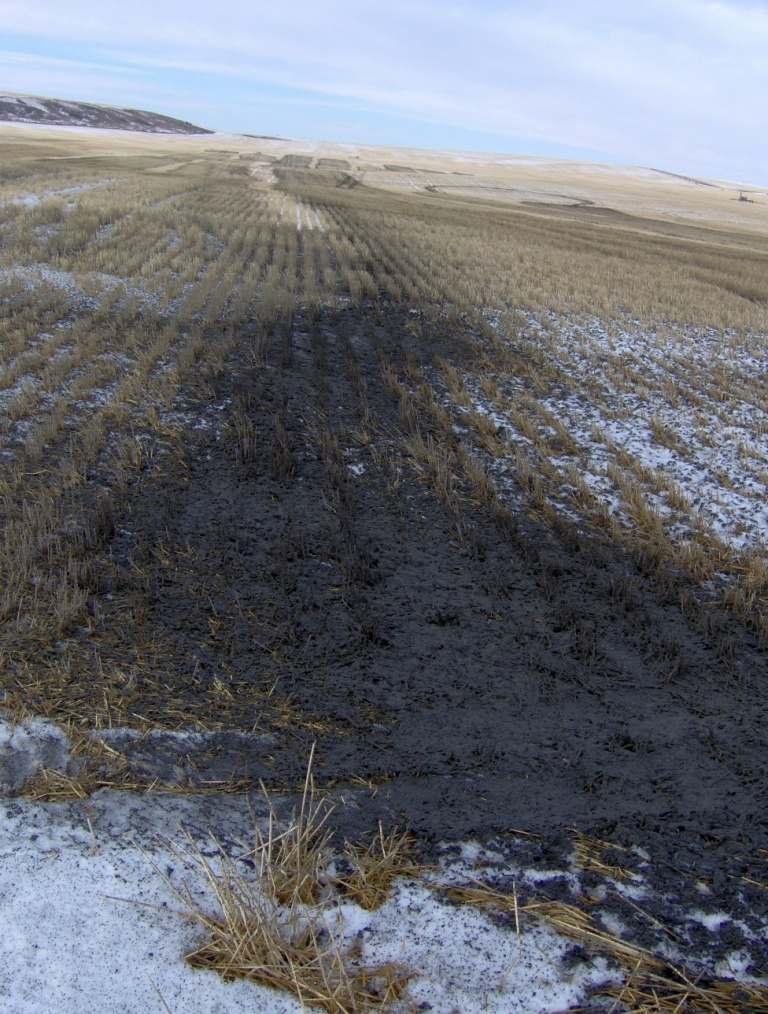
Have a bath in Encana’s waste! Dumped on crop land by Rosebud.
Or, in my contaminated, illegally frac’d by Encana well water!
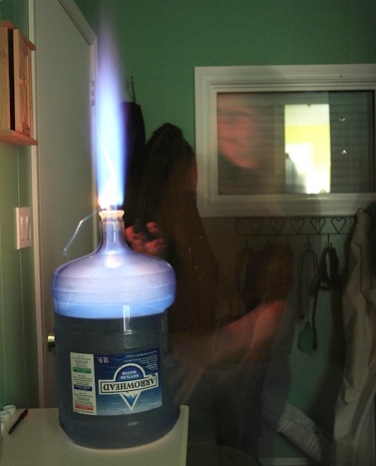
“We have to have probably some hard conversations that we probably have never really had province-wide as opposed to our localized drought events that have happened historically,” he said.
Darren Hirsch, a city councillor in Medicine Hat, chairs the city’s energy and land committee. He said the lack of precipitation in the area is worrying for the area’s agricultural sector.
He said councils in Medicine Hat, Cypress County and the town of Redcliff, have written a joint letter listing their concerns that will soon go to the province.
Hirsch said Medicine Hat may have to look at making changes such as setting up watering schedules and relying more on xeriscaping.
“The unfortunate thing is everyone likes a nice green lawn,” ![]() Not me. I’ve never watered my lawn anywhere I’ve lived. I find green lawns ugly – because I know they are forced to be that colour with massive water waste. I love water. I love the look of natural colours of native grasses which I painstakingly nurture on my land, sage greens, greys and yellows.
Not me. I’ve never watered my lawn anywhere I’ve lived. I find green lawns ugly – because I know they are forced to be that colour with massive water waste. I love water. I love the look of natural colours of native grasses which I painstakingly nurture on my land, sage greens, greys and yellows.![]() he said. “But basically we’re in a world right now where that maybe is not possible.”
he said. “But basically we’re in a world right now where that maybe is not possible.”
***
Brenda McKenzie December 17, 2023:
We have a very serious problem not only in Alberta, but across all Prairie Provinces. We are in a serious drought!
The Alberta Energy Regulator has stated that industry may need to plan for Water Shortage/drought if things do not change. What does this mean? Well the way I understand it from various sources is industry may not be able to divert freshwater from the area they hold a Water licence, but no worries, the AER is going to find them alternative Water resources. From where??? Acquifers? Do they not comprehend that ground Water is recharged from Surface water? Why have they never mapped all our underground water sources so they, we, have an understanding of All of our freshwater resources?
Their primary concern is in southern Alberta, they say!
They best be coming and having a look at the rivers in Central Alberta that provide Edmonton’s freshwater, along with most other cities and municipalities east of here, including Saskatchewan and Manitoba’s 50% share they are to receive.
Fracking at an all time high destroys an average of 60 million litres of water per fracked well! No there should be NO alternative freshwater extracted from Alberta’s hydrological cycle permanently so this fracked gas can be exported for foreign corporations record profits!
“Water Shortage Advisories in Alberta – Important Information for Water Licence Holders”

![]() And people wonder why I fiercely protect my land and the old Rosebud river that meanders through it! There is no public access to this water. It’s beautiful. I protect it for fish, birds, wildlife, trees and shrubs (notably buffalo berry and balsam poplar), the prairie herself. And, legally, because there is no public access, I can refuse it being sucked dry by frac’ers and can refuse Ducks Unlimited access too (they’d just give it to frac’ers).
And people wonder why I fiercely protect my land and the old Rosebud river that meanders through it! There is no public access to this water. It’s beautiful. I protect it for fish, birds, wildlife, trees and shrubs (notably buffalo berry and balsam poplar), the prairie herself. And, legally, because there is no public access, I can refuse it being sucked dry by frac’ers and can refuse Ducks Unlimited access too (they’d just give it to frac’ers).![]()
Water Shortage Advisories in Alberta – Important Information for Water Licence Holders Press Release by AER, industry’s self regulator and pollution/law violation enabler, Dec 12, 2023
Alberta is experiencing extremely low water levels in many parts of the province due to below-average snowpack and precipitation over the past several months, resulting in less runoff to rivers, lakes, and reservoirs. This is contributing to widespread dry conditions and water shortages, especially in southern Alberta. With a high probability of a strong El Niño event this winter (resulting in lower precipitation and higher temperatures), there is a strong likelihood of low flows and low water levels persisting into the 2024 calendar year. Go to www.alberta.ca/drought to learn more about drought, current conditions, and advisories.
We do not know yet whether this drought will become a multiyear event, consequently industry operational preparedness is vital. Industry should be aware of active water shortage advisories and plan accordingly when applying for a temporary water licence under the Water Act. Existing industry licensees must be diligent about adhering to the conditions in their water licences so that they do not exceed their withdrawal limits. It is the responsibility of the water licence holder to understand and follow the terms and conditions of their licence, particularly conditions involving low flow restrictions. Water shortage advisories are reported publicly by the Government of Alberta at https://rivers.alberta.ca.
We are working closely with the Government of Alberta as we evaluate and monitor the situation through a network of province-wide water level and snowpack measuring stations. Mitigation measures may vary depending on location and based on how much snow and rain the province receives. We will work together with partners and industry water users to help manage the situation. Industry should be proactive and plan for water shortages during 2024, including conserving water in their operations now.
For the South Saskatchewan River Basin, where the situation is more severe, the AER will reach out to industry licence holders this winter to seek estimates of their 2024 future water demand. Licensees at risk of not being able to divert water in 2024 should prepare contingency plans. Licensees can schedule meetings with the AER to review their mitigation plans and the potential use of tools available under the Water Act, which are also outlined in the Alberta drought website (www.alberta.ca/drought).
If you have any questions, contact our Customer Contact Centre by phone at 1-855-297-8311 or by email at email hidden; JavaScript is required.
***
Bruce Jackson:
The AER has a problem because they were granted the role of issuing water licences under the Water Act. I would suggest such may create a conflict of interest and the legal system in Alberta is beginning to reach a crisis situation. Who is protecting the water for the four-legged, feathered, and finned creatures? Why does the O & G gas sector have the rights to 50% of the water? Do they get the top half or the bottom half?![]() In con provinces like Alberta and Saskatchewan, industry will get all the water. Wildlife, birds, fish, us, can die of thirst and or starve.
In con provinces like Alberta and Saskatchewan, industry will get all the water. Wildlife, birds, fish, us, can die of thirst and or starve.![]()
Brenda McKenzie:
….and they use our freshwater to wash the Coal. Can you believe it. I believe it is a 1000 litres per tonne. Then they store it in settlement ponds.. of course above the waterways.. and flooding and breaks release the toxic selenium, arsenic water into our rivers and streams. Mount Polley is the prefect example of this. And then there is Teck at Sparwood. Polluted the town of Sparwood’s water well. Never admitted it but out of the kindness of their heart Teck drilled another one in a different location. Teck was never able to reach the allowable selenium levels from their mine that contaminated the Elk River. The fish with no gil plates can attest to this. And now Teck has sold and will be able to step away with all the profits and the new(9 billion) and Glencore.. yes another foreign Corp will come in, poison our freshwater as they continue to Blast our beautiful mountains down to make record profits Exporting them out of Canada.
Bloody disgusting

Refer also to:
A proportion (25% to 100%) of the water used in hydraulic fracturing is not recovered, and consequently this water is lost permanently to re-use, which differs from some other water uses in which water can be recovered and processed for re-use.
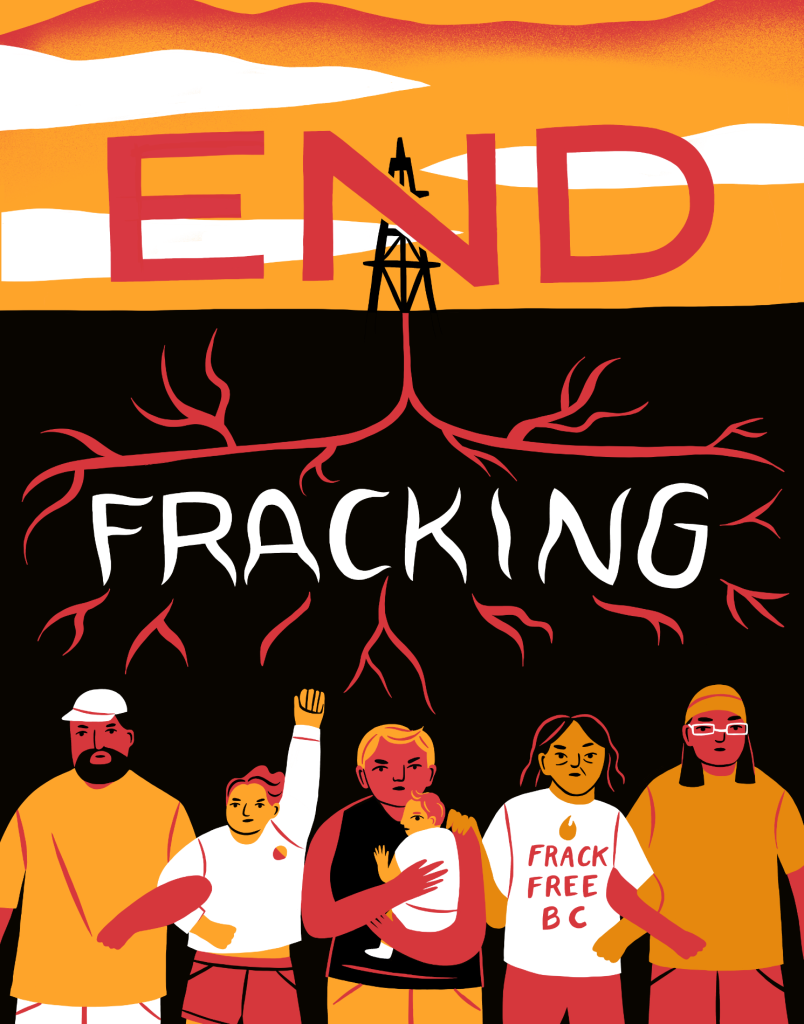
Hayes Carll: “This is why your whole world is on fire…why you can’t drink from your own springs.”
Monster Fracs, getting bigger and thirstier, threatening America’s drinking water aquifers
To Protect Water Stop Frac’ing! Stop SAGD! Stop Tarsands Mining! Stop Water Waste by Fossil Fools!
Insatiable Thirst? When drought occurs, fracking and farming collide
Drought Emergency Declared in California as Residents Urge Halt to Fracking
A Texan tragedy: Plenty of oil, but no water, Texan drought sets residents against fracking
‘Just the Beginning’: US Drought Kills Hundreds of Thousands of Trees
Water flows to money in drought-stricken drilling regions
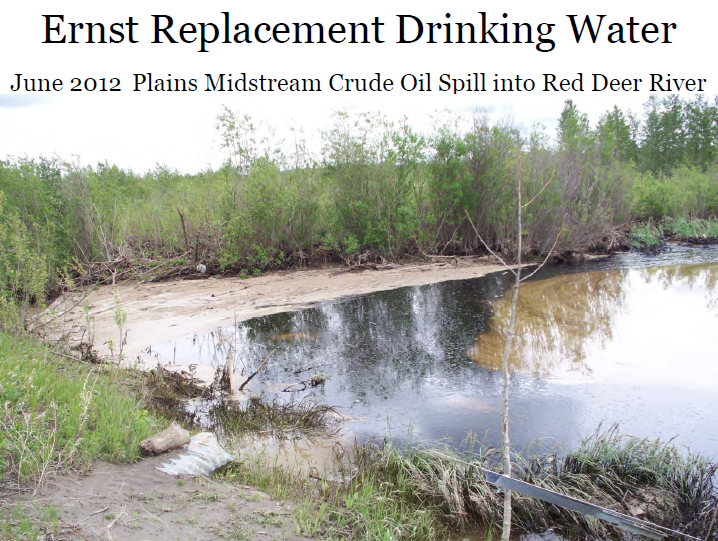
Where I haul my alternate potable water from (45 min drive one way) is sourced from the Red Deer River in photo above. Alberta is beautiful, but our deregulators and corrupt politicians (the worst gov’t ever, is the current UCP led by bigoted anti-environment Bible-thumpers Take Back Alberta into the Dark Ages) have turned the province into the oil, gas and bitumen industry’s polluted hell hole/waste pit.
